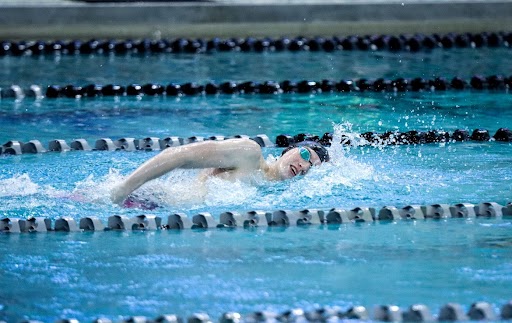Don’t cheat the system
I admit I don’t know a lot about drugs; I don’t hang around the stoners, and I have never experimented with weed before. But as an athlete, I am well aware of the harmful effects drugs can have on the body.
According to the U.S. Department of Justice, the use of drugs can increase the risk of injury and cause a lack of motivation in young athletes. So if you’re cheating the system, you’re only hurting yourself in the process.
“It’s my hope that every single athlete here at Kirkwood wants to perform at the highest level they possibly can,” Corey Nesslage, athletics director, said. “Drugs and alcohol aren’t going to help you perform at the highest level that you want to, so our message is a real simple one: don’t do [drugs].”
Not to mention most drugs are illegal. It’s no secret that the possession of drugs means potential police involvement and suspension for high school athletes.
According to Nesslage, the KHS athletics department has a voluntary admission drug policy. If an athlete is charged with the possession of an illegal substance by an authority, he or she must self-report to the athletics department. The failure to do so can result in an automatic forfeit for any game the athlete participates in.
While there is a system in place, we all know not everyone is going to tell the athletics department about their illegal activities on Friday night. But the important thing is that there are major consequences for not taking that next step. It’s bad enough when your teammates are yelling at you because you made them forfeit the game, so respect the system.
Another way officials have monitored the use of drugs in athletes is through drug testing. For high school athletes, this often includes urine sampling, which can detect drugs for days or weeks after use. The process is fairly self-explanatory.
According to STL Today, CBC has been conducting drug tests for its students for the past several years. As of 2011, the school had eight students withdraw out of over 5,000 tests that were administered.
Officials at CBC use small samples of hair about 1.5 inches long to determine whether the use of the drug was light or excessive. The sample can also give an approximation of when the drug was used.
It’s safe to say that drug testing has proven to be successful on the high school level, but I don’t think this is the solution for KHS. If we did implement them, there would be people complaining about their First Amendment rights, and I just don’t think drug tests are really necessary for teen athletes. We need to trust that people are respecting the rules because a true athlete would refrain from the use of substances they know would give them a significant disadvantage on the playing field. Fortunately, the Kirkwood athletics department does not plan to implement drug testing any time soon.
“There would have to be a whole lot more research done,” Nesslage said. “I think what would be good about [implementing drug tests] is that it would give our student-athletes a reason to say no to drugs. If that were ever to happen, the motive for me wouldn’t be to catch kids; it would be to give our kids a reason to say no.”
But that doesn’t mean the athletics department will not catch you, and they will make sure you are publicly humiliated in front of all your teammates. Maybe then you’ll come back to Earth.
So if you are an athlete and you do get caught using drugs, don’t overthink the system; just go tell Nesslage.
Your donation will support the student journalists of Kirkwood High School. Your contribution will allow us to purchase equipment and cover our annual website hosting costs.

Grade: 12
Twitter handle: @Dav_Reynolds
If you could be another Call staffer, who would you be?: Julia Wunning-Zimmer
Interests: Journalism, numbers/data,...







